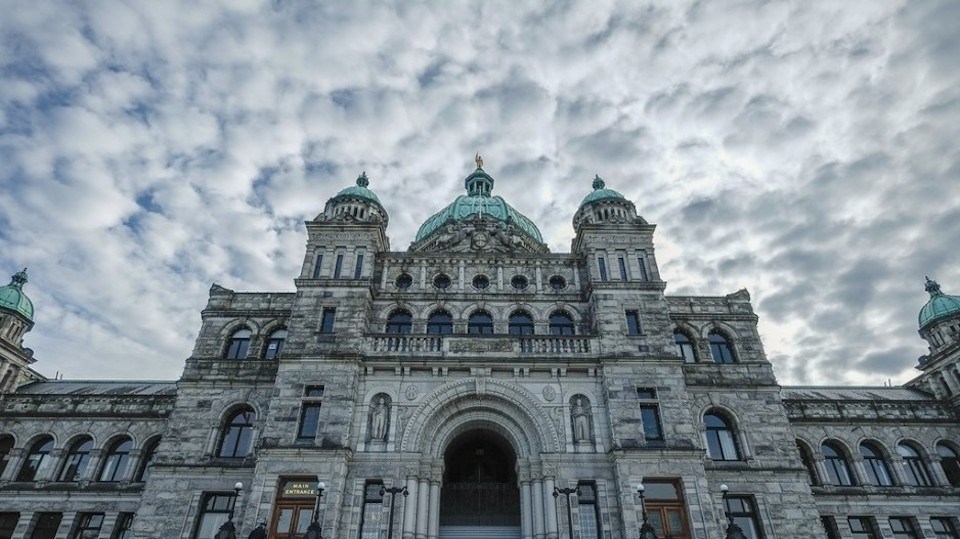The B.C. government made two attempts this week to tackle important societal issues largely outside of its control, and while its new bills may have fallen short of what some advocates wanted, they still seem like good-faith efforts.
One bill gives victims more tools to fight back when intimate images are shared online without their consent, while the other forces companies to disclose the difference in pay for men and women in a bid to reduce the gender pay gap.
Neither solves the enormous societal issues at play – digital exploitation and sexism in the workplace. Nor, in many ways, can we expect the B.C. government alone to do so. But both bills seem to take an honest swing at the problems in a way that are likely to garner all-party support.
On non-consensual sharing of intimate images, Attorney General Niki Sharma said legislation will create new fast-track options to get orders from the Civil Resolution Tribunal and B.C. Supreme Court, which can then be served against people and companies illegally distributing material.
Will the massive tech companies like Facebook and Google, as well as shady online pornography sites, comply with B.C. court orders? Unknown. But that’s no excuse not to try. B.C. is also crafting an easier way to sue for financial compensation.
“It really does target social media platforms to compel them to take down those images quickly,” said Sharma. “It’s a way of our province stepping up against those big multinationals to say that we want to protect our citizens, and we’ll use all the tools that we can in our justice system to do so.”
The second bill, shepherded by Parliamentary Secretary for Gender Equality Kelly Paddon, is set to force all businesses to report out the pay difference between male and female employees by 2026.
“It's important to note that discriminating based on gender, including pay, is against the law in British Columbia,” said Paddon.
“The transparency legislation will not only empower employees and jobseekers to better understand the situation with regard to the pay gap, but it will also encourage employers to be champion employers and be leaders in that area where that opportunity is not being taken.”
A worthy goal. But there are also shortcomings.
The government will rely on whatever salary information male and female employees voluntarily disclose, which could make for inaccurate data. It doesn’t address pay decreases caused by loss of seniority when women take maternity leave to give birth. And it puts the onus on women themselves to research the pay disparity in their own companies, and confront their employers.
It falls well below what could have been actual pay equity legislation, with fines, enforcement and teeth to ensure the job is done, pointed out B.C.’s Human Rights Commissioner Kasari Govender.
“I am concerned that this bill does not do what pay transparency legislation is intended to do, which is to provide enough information to generate sector-level or system-level data, which in turn is intended to drive systems-level change,” commissioner Kasari Govender said in a statement.
In reality, “B.C. is still decades behind other provinces,” she added. “This legislation only inches us further along – when what we really need are strides towards a more equal economy.”
The BC Greens said the bill “missed an opportunity to truly address the inequity and discrimination women face at work,” though mandating disclosure of information was a good first step.
Then on the flip side, B.C.’s business community said the legislation went too far.
“While we support the principle of equal pay for equal work, the Business Council is concerned about the impact of yet another layer of government-imposed bureaucracy and annual reporting requirements in what is already a costly and burdensome jurisdiction to conduct commerce and operate businesses,” the BC Business Council said in a statement.
So, nobody was truly happy with either bill. Which is usually a sign a government has struck the right balance.
There are no easy solutions to the complex issues of non-consensual intimate imagery, and the gender pay gap. And no government at any level has figured out exactly what to do. Simply by acting, B.C. has taken a worthwhile step forward. At the very least, both bills are worth a shot.
Rob Shaw has spent more than 15 years covering B.C. politics, now reporting for CHEK News and writing for Glacier Media. He is the co-author of the national bestselling book A Matter of Confidence, host of the weekly podcast Political Capital, and a regular guest on CBC Radio.




.jpg;w=120;h=80;mode=crop)